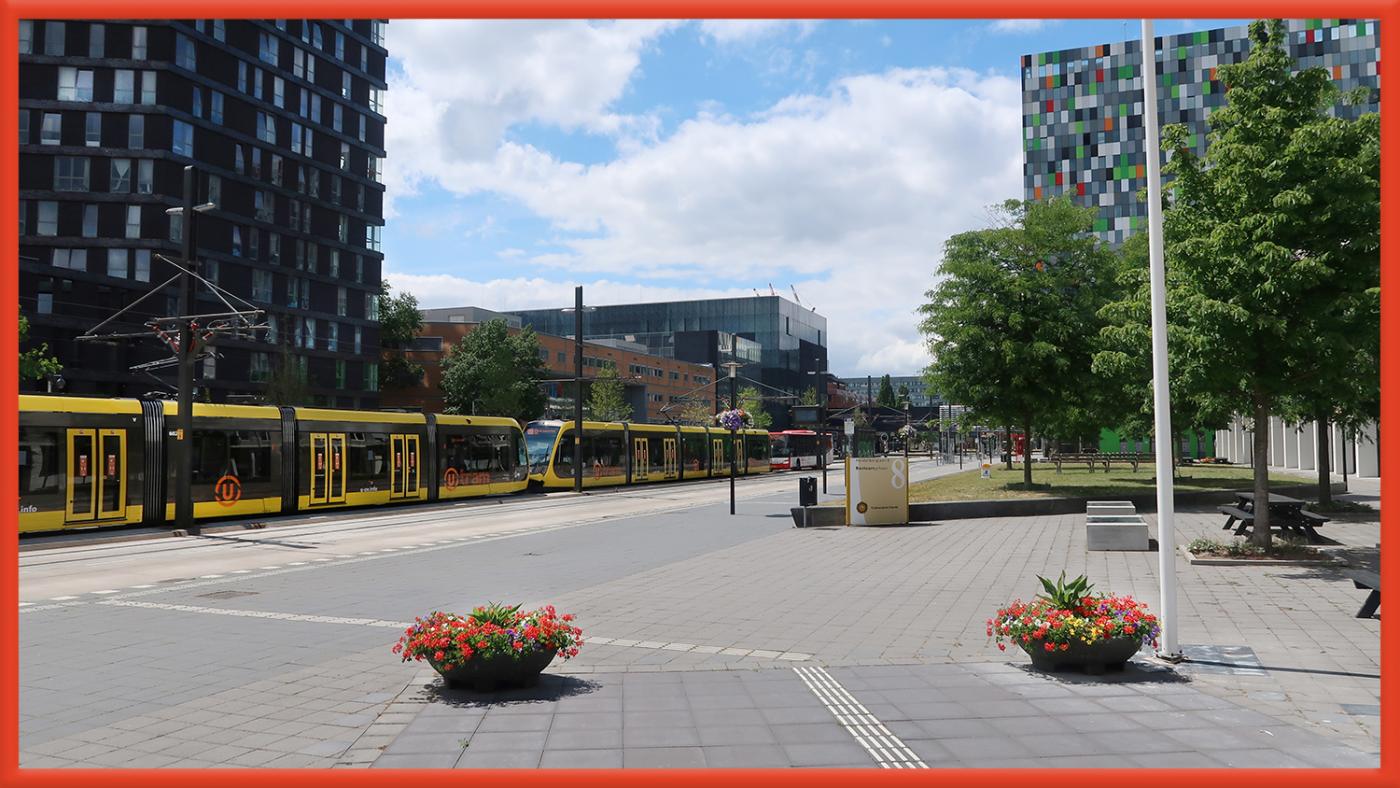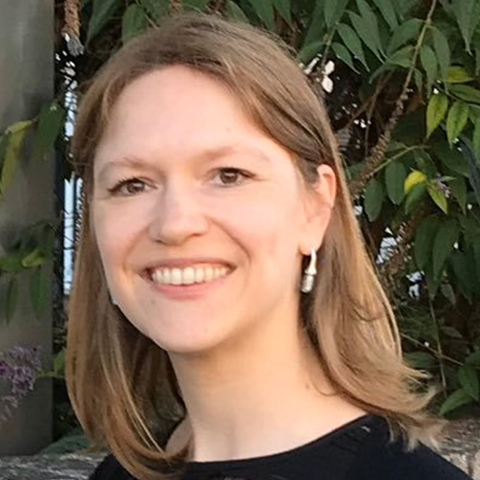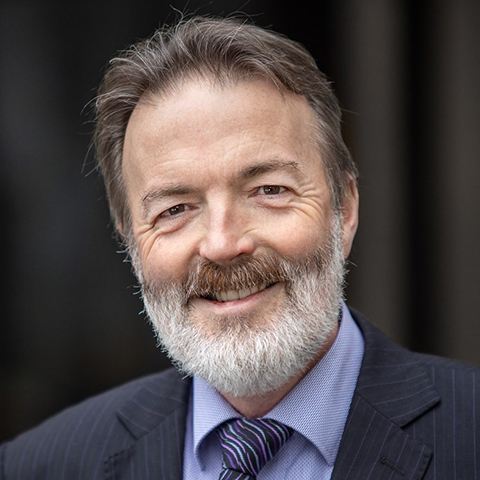Frustrated UU board restarts education in low-power mode

An entire generation of students will be adversely impacted if they aren’t able to meet up with their fellow students and teachers in real life soon. That was the core message of the opinion piece that was published last week, written by UU rector Henk Kummeling and several other rectors. The rectors criticised the fact that students seem to be the last ones to be allowed to use public transport again.
The rector says it’s mainly the “ridiculously short timeslots” that cause drastic restrictions for universities. The government says that the institutions have to organise their education in such a way that students only travel by public transport between 11am and 3pm, and after 8pm. “It’s frustrating to see that other sectors are given more freedom. Especially if you take into consideration that we’re educating people who, in the future, have to provide our wealth and wellbeing.”
The opinion piece came after a week in which SER president Mariëtte Hamer stated that online education could be a structural solution to the rush hour issues in public transport. It was a message many politicians were glad to hear.
“But then I say: no, stop. The current situation should not become a matter of course. To provide good education, it’s absolutely necessary for students and teachers to see each other regularly. Study programmes are also a necessary form of socialisation, one that helps students develop themselves.”
It’s naïve to say we should’ve organised a large-scale kladderadatsch
Some academics cynically remarked that universities had only themselves to blame for this development. After all, that’s what happens when you’re saying everywhere that the transition to online education was going so smoothly, and when the universities association VSNU launches pretty slogans like ‘On Campus when it’s possible; online because it’s possible’.
Kummeling: “That’s complete nonsense. As universities, we owed it to ourselves to keep up with education. We succeeded admirably in doing so, thanks to teachers who’ve worked brutally hard to achieve that. It’s naïve to say that we should’ve organised a big kladderadatsch and that would’ve given us what we wanted.”
With this, the rector also rejects the notion some have that students are currently not receiving full-fledged education. “Of course, it wasn’t possible to uphold the usual high quality standards in every single course, but no courses crashed and burned. At least, I haven’t seen any seen any indication for this. The degrees students will receive haven’t lost any part of their quality. Teachers and students alike should be proud of that.”
The current situation shouldn’t become a matter of course
For now, universities will have to work with the established limitations. Starting Monday, a small portion of classes can cautiously restart in person. According to estimates, around a thousand students per day will come to Utrecht University in the next few weeks, for practicum sessions, for exams, for research internships, and for personal supervision meetings. The great majority of Utrecht University’s 31,000 students will continue their education online.
Under the leadership of Elaine Mak, vice dean of Education at the Faculty of Law, a university work group studied – among other things - how best to use the limited possibilities for education at the university itself in the coming months.
Mak: “The study programmes all identified the scope of their educational activities, and all the exams of block 3 and 4 that weren’t moved online but should, if possible, be taken before the summer. Those students would then have to come to the university. We brought that list to the Security Region and thankfully, they approved.”
As a result, no courses will have to be re-taken next year. Initially, the workgroup assumed that this would be necessary. The idea of continuing classes during the summer holidays was rejected early on. Kummeling: “Students and teachers really need that period of relaxation.”
Still, not all courses can be completed. Mak: “There are students who struggle with internships they’re unable to complete, or who can’t finish their thesis research because everything’s put on hold. For those students, tailor-made solutions need to be found.” The reintroduction of the “zachte knip” (‘soft cut’) regulation – which allows students to start a Master’s programme despite deficiencies – will be a solution for some of these students.
Students and teachers really need the summer holidays to relax
But what should students expect after the summer holidays? Previously, the university announced that even then, a large number of courses will be taught online. For its buildings, the UU is currently estimating a maximum capacity of 10 to 30 percent
Mak’s workgroup established frameworks that are to help study programmes decide which students, and which types of education, will be given preference for in-person activities. Unsurprisingly, ‘location-bound’ education, like practicum sessions, are at the top of the priority list. Electives are all the way at the bottom. Study programmes have even been asked whether it’s possible to cancel some elements.
 Mak says that her workgroup was inspired by the ‘Campus Lite’ concept, introduced by the Maastricht educational scientist Barend Last, in a widely-praised LinkedIn article (in Dutch, ed.) called ‘Higher education in the 1.5-metre society’. In the article, he states that physical meetings between students and teachers should mainly be used for community building and the encouraging of collaborations. These things are especially important for first-year students. On the other hand, instruction and transfer of knowledge, for instance via lectures, could well be done online.
Mak says that her workgroup was inspired by the ‘Campus Lite’ concept, introduced by the Maastricht educational scientist Barend Last, in a widely-praised LinkedIn article (in Dutch, ed.) called ‘Higher education in the 1.5-metre society’. In the article, he states that physical meetings between students and teachers should mainly be used for community building and the encouraging of collaborations. These things are especially important for first-year students. On the other hand, instruction and transfer of knowledge, for instance via lectures, could well be done online.
The study programmes’ plans should be ready by mid-June. What will follow is a check of whether all their wishes can be granted, and whether all the courses can in fact be scheduled. Students will then be notified no later than the first half of July about what their education will look like in block 1.
In some cases, there are barely alternative for proctoring
“I’m seeing that for the first-year Bachelor’s and Master’s students, people are thinking of meetings in small groups of six students and a tutor. But some programmes are leaning towards larger meetings, with some of the students present in the lecture hall and some following the class online. A lot of things are possible. Thankfully, we’ve got the Centre for Academic Teaching which can advise us on this.”
Upper-year Bachelor’s students don’t have to be afraid of being neglected, according to the workgroup president. “They definitely won’t be forgotten, from what I’ve heard about the programmes’ plans.” Still, there are a number of programmes that are considering moving to exclusively online education. “But in those cases, it’s because they’re taking into consideration the student population, for instance because they have a lot of international students who are currently residing in their home countries.”
Kummeling wants to continue using the controversial proctoring (online surveillance during exams) after the summer. A definitive decision about this will be made in August or September, partially based on the evaluation of the experiences in block 3 and 4. Proctoring is useful especially for the faculty of Medicine, which has a large number of knowledge-based tests.
The university wants to reduce the privacy risks as much as possible, and always grant students the option of refusing to take tests this way. “And for the great majority of cases, we do manage to find a different solution. But in some cases, there are barely any alternative possibilities that don’t cause study delays. That’s also why students are asking for this.”
You know how crowded the bicycle paths were
Still, many students are wondering whether the university can’t be a little more creative. Students who live in Utrecht don’t have to travel by public transport. Shouldn’t they be given more opportunities to study together at the university?
Kummeling says the university is definitely looking into options for bypassing the public transport issue with ‘pedestrian and cycling mobility’. But, he says, that isn’t easy to do. “You know how crowded the bicycle paths in the direction of the Utrecht Science Park can get. And in the city centre, we’re dealing with old buildings, in which it’s really tricky to maintain 1.5-metre distance.”
Moreover, the rector says it’s important that the university is able to quickly adapt to changing circumstances, for instance in case of a second wave of corona. “Elaine’s workgroup is thinking in terms of scenarios. They’re looking for a ‘harmonica’-like model, which will make the university less vulnerable to surprises.”
Mak: “One thing we shouldn’t forget is that there’s also a group of students and teachers who would prefer not to come to university quite yet. Because they’re afraid, because they or their family members have health issues, or for other reasons. We’re definitely not going to consider that a problem anytime soon. Students should simply be able to continue their studies, and teachers should be able to reach an agreement with their faculty.”
The work teachers do, has to fit in the hours they work
In the meantime, many teachers are once again being confronted with the task of transforming their classes to an online environment. In the past few months, the university board repeatedly emphasised that teachers should have an eye for their own physical and mental wellbeing. In the corona circumstances, the university couldn’t expect teachers to be as effective as they’d been. The question is whether these aren’t just hollow phrases. After all, teachers have been complaining about their workloads for years.
 Kummeling: “As university board, we’re stating that the work teachers do, has to fit in the hours they work, and teachers shouldn’t overtax themselves, but also shouldn’t be overloaded. However, in the end this is something that study programmes need to take care of. It’s up to managers to ensure that everyone has enough time to do their work.”
Kummeling: “As university board, we’re stating that the work teachers do, has to fit in the hours they work, and teachers shouldn’t overtax themselves, but also shouldn’t be overloaded. However, in the end this is something that study programmes need to take care of. It’s up to managers to ensure that everyone has enough time to do their work.”
To accommodate teachers, it’s possible the university will introduce a central university budget that will help improve remote working facilities, for instance by providing equipment or good chairs. The rector says it’s not possible, however, to assign more budget to additional hours or more teachers. The uncertain financial future, as a result of the corona crisis, makes that tricky.
“If someone is performing so many tasks that an extension of their contract is reasonable and appropriate, a faculty should facilitate that. Even before the corona crisis, we were calling for better contracts, especially for temporary teachers. Faculties should really prioritise that, especially now.”
One option that might bring space and rest to teachers, Kummeling says, might be to temporarily scrap electives. “Perhaps we should simply not teach some of these courses. At the moment, it’s more important to keep up the quality of the core of programmes’ education.”
We’re still learning
At the same time, many teachers still appear to have many questions: what conditions should the online education comply with? How will the quality be assessed? Are principles like ‘minimum number of contact hours’ still applicable?
Mak understands the uncertainty. “You can’t do online everything that you did on location. But the learning goals and end terms of the programme remain the foundation. Those should be at the heart of shaping the education.”
Kummeling: “We also shouldn’t think that blended education is inferior. But we’re still learning, there are no fixed criteria. Based on students’ and teachers’ evaluations, we’ll see whether we’re on the right track, and whether there are things we should be doing differently or better.”
One thing the two do see room for improvement in, is the communication between students and teachers in online education. Kummeling: “At this moment, teachers are often talking at a black screen because students have turned off their cameras. They’re not getting any response at all, and don’t know whether their words are resonating with the students. That’s not good for your education, and it’s disastrous for the enjoyment of teaching.”
By request of the workgroup, university educational specialist will set up a guideline for teachers and students to improve the online interaction. The desired conduct will also be one of the topics.
Mak: “I do understand those students, though. It’s kind of scary to suddenly be visible on screen for everyone, with your name right there. but perhaps it’s good to start thinking about regulations and etiquette in these situations.”
Large groups are at risk of getting fewer chances
The rector has one more point of concern. He’s seeing several groups of students disappear from view after the necessary switch to studying remotely.
“The accessibility of higher education is at risk, if I’m hearing that students are experiencing issues because they have no (or poor quality) Wifi, are having a hard time at home, are dealing with personal issues, or are dealing with negative effects of a physical disability. You can’t give those students care and attention if you don’t meet or speak with them regularly.”
From today, a number of those students can access the University Library in the city centre, where forty workplaces are available. Kummeling: “But if we’re going to continue doing a lot of things online, large groups are at risk of getting fewer chances. That will, I think, be our biggest task for the coming period.”